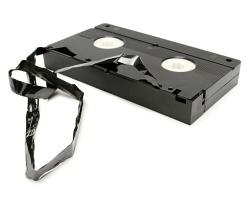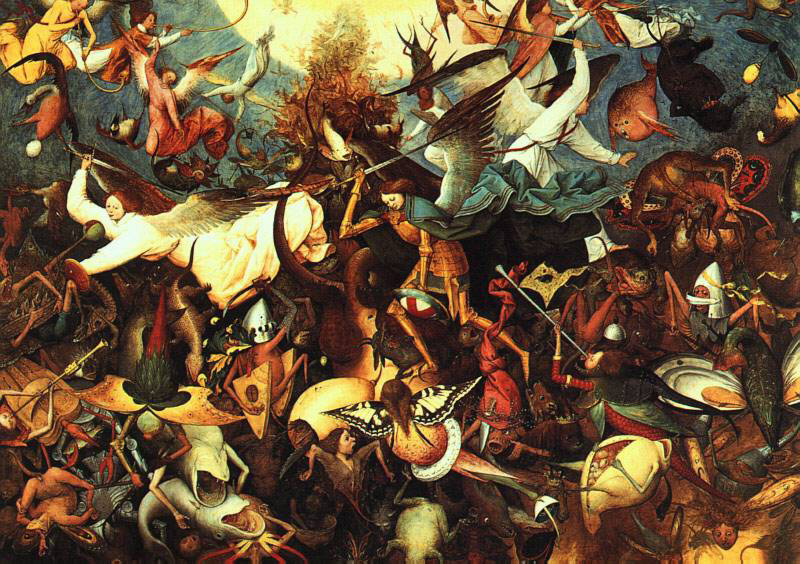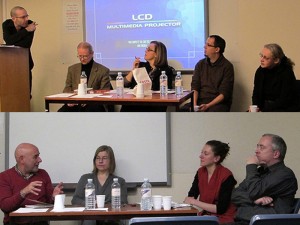Event

Activating Brixton Art Gallery, 1983-86: Archives and Memories
Saturday 5th June 2010, 11am-4pm
Westminster Forum, University of Westminster, 32 Wells street, London W1T 3UW
A collaboration between BACA (Brixton Artists Collective Archives) group, and the 198 Contemporary Arts and Learning, the project 50 Reasons to Celebrate, Brixton Art Gallery – 1983-86, Archiving Brixton Art Gallery & Artists Collective (2010-2012) will be officially launched in Autumn 2010. BACA consists of five individual and original members of the Brixton Artists Collective: Teri Bullen, Guy Burch, Françoise Dupré, Rita Keegan, and the IMCC’s Stefan Szczelkun. They were part of a significant group of artists, the Brixton Artists Collective, and were instrumental in the foundation, development and running of the Brixton Art Gallery.
The ‘Activating Brixton Art Gallery, 1983-86: Archives and Memories’ symposium at Westminster is the first of two university-based symposia that will contribute to the Project’s research and development in relation to content, context, process and dissemination. An invited group will discuss the Brixton Art Gallery & Artists Collective’s socio-political and artistic concerns and contemporary relevance.
Speakers include: Paul Dash, Department of Educational Studies, Goldsmiths; Adrian Glew, Tate Archive; Althea Greenan, curator Women’s Art Library, Goldsmiths; Ajamu, artist; Sally Mould, Brixton Art Gallery exhibiting artist and Copyart.
The 50 Reasons to Celebrate, Brixton Art Gallery – 1983-86 project promotes and celebrates the achievement and legacy of the Brixton Art Gallery & Artists Collective and provides contexts and opportunities for the re-opening of existing archives and for future archiving of the Gallery and its Collective. The project incorporates public events and participation including a postcard project, an oral history project, a community archiving project, community-based workshops, gallery talks, symposia, a publication and a major archiving exhibition at the 198 Contemporary Arts and Learning (winter 2011). At the end of the Project, Brixton Art Gallery & Artists Collective’s old and new archives will be transferred and donated to Tate Archive for safekeeping and for broader public access (Spring 2012). Lambeth Archives, Tate Archive, Young People’s Programmes, Tate Britain and the Women’s Art Library, Goldsmiths, University of London have confirmed their support. Artist Studio Company, Autograph ABP, Birmingham City University, London School of Economics, Hall Carpenter Archive and the University of Westminster are also confirmed partners.
For further details about the syposium, please contact Stefan Szczelkun at: S.Szczelkun@westminster.ac.uk
For more information about the Brixton Art Gallery and its Collective and first 50 exhibitions please visit the website set up and developed by Brixton Art Gallery & Artists Collective co-founder Andrew Hurman: http://brixton50.co.uk
Ballardian Architecture
Tagged as Architecture, Ballard, technology, Urban

David Cunningham, Deputy Director of the IMCC, is, along with John Gray and Nic Clear, one of the participants in the symposium Ballardian Architecture: Inner and Outer Space to be held at the Royal Academy of Arts on Saturday 15th May, 2-5pm. The event will trace several themes in Ballard’s literary analysis of the contemporary built environment, including the concept of spectacle and role of the media in contemporary society, and how Ballard’s fascination with so-called “invisible literatures”, such as scientific journals, technical manuals and advertising copy, can be seen as a literary counterpart to pop art and the “brutalist” aesthetic of modernity.
Tickets: £25/£16 reductions* (includes a drink)
Further details here.
The Hole in Time: Full Programme
Tagged as archive, radical philosophy, Theory, time

The Hole in Time: German-Jewish Political Philosophy and the Archive
Date: Wednesday 23rd June – Thursday 24th June 2010, 9.30-6.00
Venue: Portland Hall, University of Westminster, 4-16 Little Titchfield Street, London W1W 7UW
Admission is free, but, since places are limited, please contact the organisers to book a place by the 17th of June at theholeintime@live.com
Wednesday 23rd of June
9.30 – 10.00 Introduction: Sas Mays (Westminster), Leena Petersen (Sussex)
10.00 – 12.00 Panel 1: Modern Crisis and the History of the Present – Part 1
Nicholas Lambrianou (Birkbeck): ‘Figures of Interruption: Philosophical Dramas of Temporality and History in Benjamin and Rosenzweig’
Sami Khatib (FU Berlin): ‘The Messianic and the Archive: Walter Benjamin’s “Politics of Time”’
Leena Petersen (Sussex): ‘Messianic Libertarianism and Linguistic Philosophies of History in Benjamin and Related Writings of His Time’
Chair: Christian Wiese (Sussex)
1.00 – 3.00 Panel 2: Poetics of Temporality
Howard Caygill (Goldsmiths): ‘Paul Celan’s Visual Archive’
Nitzan Lebovic (Tel Aviv / Sussex): ‘Paul Celan: Language of Loss at the Heart of Time’
Shela Sheikh (Goldsmiths): ‘The Wounded Archive: Derrida Reading Celan’
Chair: Keston Sutherland (Sussex)
3.30 – 5.30 Panel 3: The Temporality of Archives – Part 1
Elina Staikou (Goldsmiths): ‘Vigil of the Archive: On Derrida Dreaming Benjamin’
Rebecca Dolgoy (Montreal / FU Berlin): ‘The Work of Art as Archive: Examining Adorno’s Zeitkern as Time Capsule’
Tommaso Speccher (FU Berlin): ‘The Hole in Space: Fragmenting and Re-piecing the Archive between Walter Benjamin and Daniel Libeskind’
Chair: John Roberts (Wolverhampton)
Thursday 24th of June
10.00 – 12.00 Panel 4: Modern Crisis and the History of the Present – Part 2
Reut Paz (Humboldt University Berlin): ‘The Legal Transcendentalism of Hans Kelsen as a Hole in Time’
Birte Loeschenkohl (Frankfurt): ‘Kairos: The Right and Opportune Moment as a Caesura in and of Time’
Veronika Koever (Queen Mary): ‘Reversing the Irreversible: Jean Améry’s “ressentiments” and the Moralisation of Time’
Chair: Leena Petersen (Sussex)
1.00 – 3.00 Panel 5: The External Archive
Andy Fisher (Goldsmiths): ‘”Quiet Life”: History, Pathos and the Archive in Ernst Friedrich’s Kriege dem Krieg’
Manu Luksch (London): ‘Moonwalking in Real Time’
Chair: Esther Leslie (Birkbeck)
3.30 – 5.30 Panel 6: The Temporality of Archives – Part 2
David Cunningham (Westminster): ‘Abstract Times: Benjamin, Kafka and the Modernism of Tradition’
Matthew Charles (Middlesex): ‘The Snow Line of the Archive: Walter Benjamin On the Trail of Old Letters’
Andrew McGettigan (Central Saint Martins College of Art & Design, London): ‘The Archive and the Idea: Walter Benjamin’s Experiences of Time’
Chair: Nitzan Lebovic (Tel Aviv/Sussex)
Organised by Sas Mays (Westminster), and Leena Petersen and Nitzan Leibovic (Sussex), as part of the research project ‘Archiving Cultures’ at the IMCC.
Old Media/New Work: Speakers
Tagged as art, cinema, magic, technology
Old Media / New Work: Obsolete Technologies & Contemporary Art
Saturday 1st May 2010, 9am-6pm
Portland Hall, University of Westminster, 4-16 Little Titchfield St, London W1W 7UW
Contemporary art shows renewed interest in ‘lost’, ‘obsolete’, and ‘archaic’ visual media forms and the illusion-producing processes of the past—for example: the camera obscura, the magic lantern, stereoscopy, Victorian stage illusion, shadowgraphy, optical toys, the panorama and stylised period representations such as the imagery of spiritualism, automatic writing and early photographic techniques. A platform for engagement with such ‘old media’ has been provided by the Magic Lantern Society’s popular public lecture series, Professor Pepper’s Ghost, at the University of Westminster this year. As a further development, the conference ‘Old Media / New Work’ will concentrate on art and artists working with or around such ‘lost’ practices, in order to show, discuss, and explore such work in context of contemporary relevance and future possibilities.
Speakers:
Madi Boyd (Independent): ‘Pepper’s Ghost for the 21st Century’
Ignaz Cassar (Leeds / Nottingham Trent): ‘The Image of, or in, Sublation’
Mark Ferelli (Independent): ‘Michael Reeves Directs’
Mark Jackson (IMT Gallery): ‘Audiobooks of the Dead: William Burroughs & Konstantīns Raudive’
Ben Judd (Independent): ‘Magic, Belief, and Immersion’
Naomi Kashiwagi (Independent): ‘Reinventing the Reel: Reclaiming the Everyday’
Wiebke Leister (LCC): ‘Towards an Iconography of the White Face’
Olivia Plender (Independent): ‘A Stellar Key to the Summerland’
Peter Ride (Westminster): ‘When Everything Old is New Again’
Aura Satz (London Consortium): ‘Sound Seam: Gramophone Grooves & Primal Sound’
Dan Smith (Chelsea): ‘October Outmoded: Utopian Failure & Technological Possibility’
Simon Warner (Independent): ‘Isolating V5: Towards a Human Zoetrope’
Entrance is free but, as places are numbered, please contact the organisers, Sas Mays (IMCC) and Mervyn Heard (Magic Lantern Society), for a place: oldmedianewwork@live.com
Hole in Time workshop: speakers announced
Tagged as Europe, radical philosophy, Theory, time

The Hole in Time: German-Jewish Political Philosophy and the Archive
Date: Wednesday 23rd June – Thursday 24th June 2010, 9.30-6.00
Venue: Portland Hall, University of Westminster, 4-16 Little Titchfield Street, London W1W 7UW
Left discussions of politics and history owe much to German-Jewish theories of temporality that emerged in response to the political crises of twentieth-century Europe; such theories helped to problematize both the life of the individual and how the state perceived it. The workshop ‘German-Jewish Political Philosophy and the Archive’ brings together interested parties to engage with the data collection and archival dimensions of German-Jewish conceptions of temporality, history and crisis, as well as the German-French dialogue in critical philosophy.
Speakers: Howard Caygill (Goldsmiths, London); Matthew Charles (Middlesex); David Cunningham (IMCC, Westminster); Rebecca Dolgoy (Montreal/ FU Berlin); Andrew Fisher (Goldsmiths, London); Sami Khatib (FU Berlin); Veronika Koever (Queen Mary, London); Nicholas Lambrianou (Birkbeck, London); Nitzan Lebovic (Tel Aviv/Sussex); Birte Loeschenkohl (Frankfurt); Manu Luksch (London); Andrew McGettigan (University of the Arts, London); Reut Yael Paz (RishonLeZion); Silvia Richter (Heidelberg); Shela Sheikh (Goldsmiths, London); Tommaso Speccher (FU Berlin); Elina Staikou (Goldsmiths, London)
Chairs: Paul Betts, Christian Wiese, Esther Leslie, Sas Mays, Leena Petersen, Keston Sutherland
Co-organised by the IMCC and Centre for German-Jewish Studies, University of Sussex
Popular Matters at the Whitechapel Salon
Tagged as art, matter, pop, technology
%201991.jpg)
The Whitechapel Salon: Matter Matters I: Popular Matters
Thursday 13th May, 7pm
Study Studio, Whitechapel Gallery, London E1 7QX
The Whitechapel Salon is back! Spanning art, architecture, performance and sustainability, the forthcoming year-long series of four Salon discussions focus on the matter of ‘matter’ – its nature, substance and the productive forces that govern it. Chris Horrocks, Principal Lecturer, Kingston University and Julian Stallabrass, Reader, Courtauld Institute of Art consider Popular Matters including mass culture, vernacular photography, Web 2.0 and user-generated content.
Book now to avoid disappointment! Book your ticket here.
Tickets: £8/£6 (includes free glass of wine)
From Intermodernism to Science Fiction
Tagged as feminism, Modernism, science fiction

Wednesday 14th April, 1.15-2.30pm
Room 106, University of Westminster, 32-38 Wells Street, W1T 3UW
Nick Hubble (Brunel University)
‘Naomi Mitchison: From Intermodernism to Science Fiction (via Mass-Observation)’
From her 1920s novels, influenced by Lawrence but aimed at the audience of Wells, to her subsequent deployment of modernist techniques for political ends, Naomi Mitchison may be considered a key intermodern writer. Her literary output during the 1930s – The Corn King and the Spring Queen (1931), Beyond This Limit (1934; a feminist fantasy illustrated by Wyndham Lewis), We Have Been Warned (1935), The Moral Basis of Politics (1938) and The Blood of the Martyrs (1939) – is comparable with Orwell’s. Her relentless pursuit of the ‘just society’, free from gender-based and sexual repression, made her a controversial figure even in that controversial decade. And her close literary associates of that decade – including Auden, Aldous Huxley, Olaf Stapledon, Stevie Smith, Wyndham Lewis and Walter Greenwood – suggest different ways of thinking about literary networks and cultural history in general. She was also a friend and supporter of Tom Harrisson and Mass-Observation, for whom she kept a wartime diary. Nick Hubble’s paper analyses this intermodern work and investigates how it relates to Memoirs of a Spacewoman (1962), a forerunner of the 1970s feminist utopian science fiction of writers such as Ursula Le Guin, Marge Piercy and Joanna Russ.
Free to all.

Thursday 22nd April, 6pm
The Boardroom, University of Westminster, 309 Regent Street, W1B 2UW
In the final event in the 21st Century London series of talks at Westminster Rachel Lichtenstein, author of Brick Lane and (with Iain Sinclair) Rodinsky’s Room, and Visiting Fellow at the IMCC, will be speaking at Regent Street.
For more information, please email Monica Germana at m.germana@westminster.ac.uk. Events are free of charge, but booking is essential: please email Sharon Sinclair at sinclas@wmin.ac.uk to book a place.

Thursday 11th March, 6pm
The Boardroom, University of Westminster, 309 Regent Street, W1B 2UW
Following a successful first event with urban visionary Iain Sinclair, in the second of a new series of talks at Westminster entitled 21st Century London, exploring the challenges and opportunities the city offers to the contemporary writer, Toby Litt will be speaking at Regent Street. Toby was winner of the 2009 Manchester Fiction Prize, and his many novels include Corpsing (2000), Ghost Story (2004) and Hospital (2007). Future speakers will be Diran Adebayo (March 18) and visiting research fellow at the Institute Rachel Lichtenstein (April 22).
For more information, please email Monica Germana at m.germana@westminster.ac.uk. Events are free of charge, but booking is essential: please email Sharon Sinclair at sinclas@wmin.ac.uk to book a place.
Wednesday 10th March, 1.15-2.30pm
Room 106, University of Westminster, 32-38 Wells Street, W1T 3UW
Andrew Smith (University of Glamorgan)
‘Haunted Houses and History: Locating the Anglo-American in Henry James’
Free to all.
Old Media/New Work: Call for Participants
Tagged as art, cinema, gothic, magic, technology
Old Media / New Work: Obsolete Technologies & Contemporary Art
Saturday 1st May 2010, University of Westminster, London
Contemporary art shows renewed interest in ‘lost’, ‘obsolete’, and ‘archaic’ visual media forms and the illusion-producing processes of the past—for example: the camera obscura, the magic lantern, stereoscopy, Victorian stage illusion, shadowgraphy, optical toys, the panorama and stylised period representations such as the imagery of spiritualism, automatic writing, audio-technologies and early photographic techniques.
Co-organised by the Magic Lantern Society and the IMCC—in the wake of 2009-10’s popular public lecture series, Professor Pepper’s Ghost, at the University of Westminster—Old Media / New Work will provide a forum at which artists working with or around such ‘lost’ concepts and technologies can come together to show, discuss, and explore their own work in context of these past techniques, their contemporary relevance, and their future possibilities. The conference will also be documented and continued by a new WordPress website that will allow participants to upload images, texts and comments.
Confirmed participants include: Jonathan Allen; Geoff Coupland; Mark Ferelli; Mark Jackson; Juliette Kristensen; Susan MacWilliam; Olivia Plender; Joseph Ramirez; Aura Satz; Dan Smith; Simon Warner; Isabel White
The organisers, Mervyn Heard and Sas Mays, welcome participation from established practitioners, as well as up-and-coming artists and researchers and specialists in the field. Interested parties should send a short (250-word) description of their topic and their CV, by 14th March 2010, to: OldMediaNewWork@live.com
Wednesday 24th February, 1.15-2.30pm
Room 106, University of Westminster, 32-38 Wells Street, W1T 3UW
Nigel Mapp (University of Tampere, Finland)
‘Milton, Life, Heresy’
Free to all.
The Portrait and the Novel
Tagged as Literature, novel, portrait, visual culture

Wednesday 24th February, 4.15pm
Room 106, University of Westminster, 32-38 Wells Street, W1T 3UW
Joe Bray (University of Sheffield)
‘Conceptual Metaphor and the Language of the Early Nineteenth-Century Portrait’
Hosted by our colleagues in Westminster’s English Language and Linguistics section, Joe Bray examines the meanings generated by frequent references, both literal and metaphorical, to the portrait in the early nineteenth-century novel. As critics have noted, the late eighteenth and early nineteenth-century novel drew on a well-developed cultural understanding of the portrait-novel connection, and this is particularly true of the novels analysed in this paper: Maria Edgeworth’s Belinda (1801) and Jane Austen’s Emma (1816). Each novel is extensively permeated by a metaphor of the countenance, or in some cases the whole body, as a painted portrait. The mapping involved would seem to create a ‘blended space’ which suggests that the emotions on the face can be easily read and understood, and thus that the body serves as a reliable index to ‘character’. Yet the implications of transparency and legibility that the metaphor of the painted countenance evokes are challenged in various ways in each novel.
Free to all.
Visual Culture Studies in Europe: An Update
Tagged as education, Europe, visual culture
Friday’s international conference entitled ‘Visual Culture Studies in Europe’, hosted by the Institute, was a huge success. A stella cast of leading academics, curators, and editors from Austria, Spain, Croatia, Norway, Belarus, Italy, England, and France including Iain Chambers, Oliver Grau, and Adrian Rifkin came together to discuss the study of visual culture within the context of European universities, art colleagues, and cultural institutions. The audience, a talkative mix of staff and students from Westminster as well as welcome guests from elsewhere in London, Brighton, and as far away as Lithuania, had a day to remember. The conference speakers, members of the Visual Culture Studies in Europe Network, plan to meet again next year, this time in Barca!
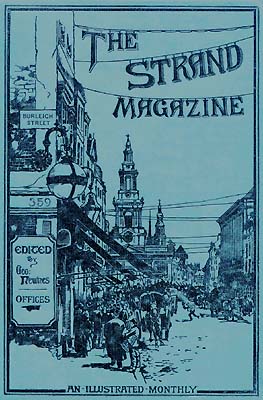
Wednesday 10th February, 1.15-2.30pm
Room 106, University of Westminster, 32-38 Wells Street, W1T 3UW
Jonathan Cranfield (University of Kent)
‘Veneers of Science: Science and Ideology in The Strand Magazine’
Free to all.
Friday 5 February 2010
Room 2.05c, 4-12 Little Titchfield Street, University of Westminster, London W1W 7UW
Cost: £20/£10 concs.
Download a booking form here
10:00 Introduction
10:15-12:30 Session 1: Cartographies of Power
Iain Chambers, University of Naples, Italy
Joachin Barriendos, Curator, Santa Monica Art Centre, Barcelona, and Professor Anna Maria Guasch, University of Barcelona, Spain
Dr Almira Ousmanova, European Humanities University, Belarus/Lithuania
12:30-1:30 Lunch
1:30-3:45: Session 2: Education, Education, Education
Professor Adrian Rifkin, Goldsmiths, University of London, England
Lorraine Audric and Professor Andre Gunthert, Laboratoire d’histoire visuelle contemporaine, L’Ecole des Hautes Etudes en Sciences Sociales
Dr Nina Lager Vestberg, Norwegian, University of Science and Technology Trondheim, Norway
3:45-4:15 Break
4:15-6:30: Session 3: Projects
Dr Oyvind Vagnes, University of Bergen, Norway
Kresimir Purgar, Center for Visual Studies Zagreb, Croatia
Professor Oliver Grau, Danube University, Krems, Austria
The game of war
Tagged as politics, Situationism, the avant-garde

Tuesday 16th February, 3.00-5.00pm
Westminster Forum, 5th Floor, University of Westminster, 32-38 Wells Street, W1T 3UW
Richard Barbrook (University of Westminster)
‘What’s the actual title? The Game of War: Understanding Situationist’
Hosted by our nextdoor neighbours in the Centre for the Study of Democracy, colleague and fellow traveller Richard Barbrook talks about Guy Debord and Class Wargames. Free to all.
Find out more about Class Wargames here.
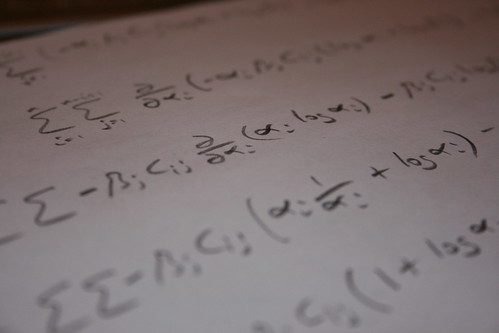
Wednesday 27th January, 1.15-2.30pm
Room 106, University of Westminster, 32-38 Wells Street, W1T 3UW
Peter Johnston (Royal Holloway, University of London)
‘The Mathematical Contexts of J.M. Coetzee’s Early Poetry (1958-1964)’
Free to all.
Public Lecture: Toby Miller
Tagged as education, television, Theory, visual culture
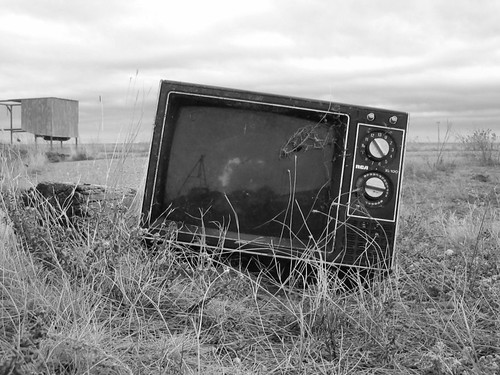
Wednesday January 13th 2010, 5.00pm
Cayley Room (room 152), University of Westminster, 309 Regent Street
Professor Toby Miller (University of California, Riverside)
“Cultural Policy Redux”
Toby Miller is editor of the journal Television & New Media, and author of many books including Spyscreen (Oxford University Press), Television (Routledge), Television Studies (BFI), Popular Culture and Everyday Life (Sage), Technologies of Truth (University of Minnesota Press), The Avengers (BFI), and The Well Tempered Citizen (The Johns Hopkins University Press).

Friday 15 January 2010, 10am-4.30pm with public lecture at 5pm
Fyvie Hall, University of Westminster, 309 Regent Street
Our next door neighbours in the Centre for the Study of Democracy (CSD) are hosting their annual CSD Encounter on Friday 15th January 2010. Following recent encounters with Julia Kristeva and Stuart Hall, this year’s one-day event will be focused on the work of Charles Taylor, with two workshop sessions followed by a public lecture by Professor Taylor himself on ‘Secularism and Multiculturalism’. Workshop speakers include Grace Davie, Steven Lukes, Tariq Modood, Chantal Mouffe and Stephen Mulhall.
For further information and to RSVP email: Jessica.schmidt@my.westminster.ac.uk


The Institute for Modern and Contemporary Culture
University of Westminster Department of English, Linguistics and Cultural Studies
32-38 Wells Street, London W1T 3UW. United Kingdom.

